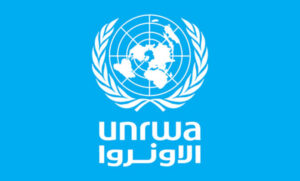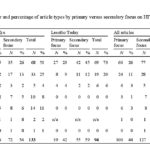The Current Hardships Facing Palestinian Refugees
No Comments yet
The United Nations’ Relief and Works Agency (UNRWA)—known as the main international relief and human development organization for Palestinian refugees—defined Palestinian refugees as “persons whose normal place of residence was Palestine during the period 1 June 1946 to 15 May 1948, and who lost both home and means of livelihood as a result of the 1948 conflict.” However, most notably, Palestinians displaced because of the 1967 war, and subsequent hostilities, are not referred to or registered as refugees by the Agency, but they are eligible to receive services by UNRWA. Despite this fact, within segments of the international community, Palestinians who lost both their homes and means of livelihood as a result of the 1967 war, and subsequent hostilities, are also regarded as refugees.
In the five areas where UNRWA is in operation, namely, Jordan, Lebanon, Syria, the Gaza Strip, and the West Bank (including East Jerusalem), the hardships faced by the Palestinian refugees has worsened in recent history.
Most recently, with respect to the coronavirus pandemic, the Palestinian refugee population is increasingly in a vulnerable position with little-to-no access to the COVID-19 vaccine. Within the occupied territories of Gaza and the West Bank, COVID-19 cases are surging with more than 2,236 fatalities and 16,000 active cases in these areas (including East Jerusalem). Meanwhile, Israel has been internationally lauded for carrying out the world’s speediest vaccination drive, with over 90 percent of Israelis above the age of 50 having been fully vaccinated as of February 2021. However, Israel has denied Palestinians living within the occupied territories significant access to the vaccines as Israel argues that the Oslo Accords places responsibility on the Palestinian Authority regarding issues of public health. But even under the Oslo Accords, Israel does have a commitment to help Palestinians living in the occupied territories fight the pandemic. Article 17, stipulation 6 of the Accord states: “Israel and the Palestinian side shall exchange information regarding epidemics and contagious diseases, shall cooperate in combating them and shall develop methods for exchange of medical files and documents.”
Moreover, given that Israel is the occupying power—under international law, namely, the Fourth Geneva Convention of 1949, Israel has a responsibility to ensure the welfare of the population which it is occupying—namely, the Palestinian people in the West Bank, East Jerusalem, and Gaza. The West Bank remains occupied by Israel which “controls entrance and egress, much of the infrastructure, the roads, the currency…in short, all the means of Palestinian independence”—as pointed out by Mitchell Plitnick, the former US director of the Israeli human rights organization, B’Tselem. In the case of Gaza, Israel since 2007 has imposed a land, air, and sea blockade of Gaza. Most notably, the effects of Israel’s blockade, coupled with Israel’s routine bombing of Gaza, has crumbled its infrastructure, led to massive poverty, food insecurity, and resulted in less than 4% of the water in that territory, consisting of nearly 2 million people, being fit for human consumption. Israel thus, in addition to the West Bank, also continues to occupy the Palestinians living within the Gaza Strip, and therefore, Israel as their occupier has a responsibility to vaccinate Gazans. In February 2021, Palestinian officials condemned Israel for blocking the entry of 2,000 coronavirus vaccine doses into Gaza to assist its health workers. Despite evidence to the contrary, even if Israeli claims with respect to the Oslo Accords is valid, this is irrelevant, as stated by scholar Yara M.Asi, “the [Geneva] convention specifies that no agreement between the parties supersedes its protections while occupation continues. This would include the Oslo Accords, signed in 1995 as an interim agreement.” Furthermore, Israel, instead of firs seeking to vaccinate Palestinians in the occupied territories, pledged to provide its spare vaccines to foreign allies such as Honduras and the Czech Republic.
In areas outside of the occupied territories, such as Lebanon which is home to an estimated 207,000 Palestinian refugees, according to UN figures, it has been reported that “Palestinian refugees in Lebanon are three times more likely to die with COVID-19 than the population as a whole.”
During the COVID-19 pandemic, the United Nations’ Relief and Works Agency (UNRWA), responsible for providing healthcare and education to millions of Palestinians living both inside and outside the occupied territories, was “recognized as a major contributor to the containment of the COVID-19 virus”—having quickly adapted its provision of services in compliance with the World Health Organization recommendations. UNRWA implemented remote education curriculum practices, adopted door-to-door delivery of food and medicines, as well as innovative health and psychosocial support hotlines which have been regarded as a significant lifeline to the refugee population during the pandemic. Moreover, UNRWA is also responsible for waste disposal and sanitation services to Palestinian refugee camps across the Middle East — “this includes disinfectant treatments to roads and installations to prevent the spread of COVID-19.”
However, due to the United States’ complete termination of funding to UNRWA under President Trump in 2018, the operations of the Agency were almost brought to a complete halt.
When the pandemic broke out, UNRWA was operating on a shoestring budget with Elizabeth Campbell, UNRWA’s director in Washington, stating in May 2020 that due to America’s termination of funding, “We are basically operating on a month-to-month basis. Right now, we have funding to pay our 30,000 health care workers until the end of this month.”
Even once the COVID-19 pandemic is over, it does not appear that there will be any end in sight to the suffering faced by Palestinian refugees. The hardships faced by Palestinian refugees will continue until the central issues of contention are fully addressed within a final settlement to the conflict. The central issues of contention as it pertains to Palestinian refugees is, firstly, the right of return, secondly, the right of Palestinians for compensation from Israel due to the destruction of Palestinians’ homes, and their livelihoods as a result of the 1948 war, the 1967 war, as well as further hostilities, and the third issue of contention is the assimilation and resettlement of refugees in different countries. Most significantly on the first two points, there is serious doubt as to whether right of return and compensation (both issues which are notably embodied within United Nations General Assembly Resolution 194) is politically feasible and there is doubt as to whether there are legitimate frameworks within international law that firmly allows stateless Palestinians to successfully advocate for the right of return and compensation.
The Taba Summit is widely regarded as perhaps the closest instance that a final settlement to end the longstanding conflict was almost reached between the Israelis and the Palestinians. At the time of the Taba Summit, the Israelis expressed an understanding on the issue of compensation, with Israel advocating that an international commission be created to gather, verify, and pay individual compensation claims. However, at that time, you had a government in Israel that, at least, gave the public impression that it was willing to negotiate on key issues required to reach a permanent settlement to the conflict. Presently, however, the center-left parties in Israel, such as the Labour Party, are a shell of its former self and a significant segment of the population in Israel strongly supports Benjamin Netanyahu and his far-right Likud Party, which has been expanding Israeli settlements in the occupied territories, further jeopardizing any viable solution to the conflict. There is also disunity among the Palestinians with friction between the Palestinian Authority in the West Bank and Hamas in Gaza. Lastly, unless the United States is willing to apply meaningful pressure on Israel to seriously negotiate a final settlement with the Palestinians, an end to the protracted refugee crisis will not be possible.
You May Also Like
Comments
Leave a Reply








